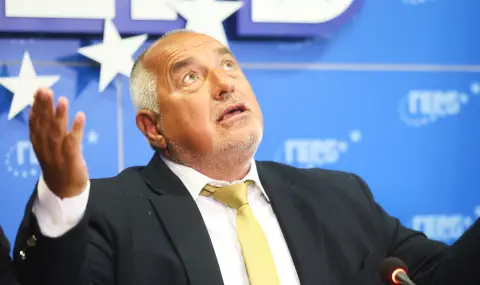For years, Bulgaria has been in a state of permanent ungovernability, writes FAC correspondent from the Balkans, Michael Martens, in an extensive publication. He recalls that the upcoming parliamentary elections on October 27 will be the seventh in a row in less than 4 years – a new European record. His prediction is that even after them there will not be a stable majority to form a regular government, and that there may be new elections as early as next spring, as these will not break the political stalemate.
"When the leading (political) forces in a parliamentary democracy do not cooperate, albeit for understandable reasons, there is a threat of gridlock – not without consequences for the country", we read in the publication.
How is Bulgaria doing
Among the negative consequences that the author of the FAC points out are, for example, the lack of such important investments in infrastructure, "…because important laws cannot be passed because senior government officials do not want or cannot take responsibility and refuse to sign the important laws, because the technical transitional governments, which really only have to prepare the next elections, do not have the competence, the powers or the political will to make fundamental decisions that will commit the country for years to come, and because (in this uncertain environment) investors prefer to abstain" .
And more: the hopes of the country - or rather of a part of its political and especially its economic elite - for Bulgaria's accession to the Eurozone and for full membership in the Schengen area remain dashed for the time being. The situation is simply too unstable, points out the author, who is a good connoisseur of Bulgaria.
At the same time, the country is losing money: since important preconditions are not met, billions of EU funds to which the country is entitled cannot be absorbed. For example, from the "Recovery and Resilience Mechanism" Bulgaria is entitled to almost 6.3 billion euros, of which, however, the country managed to absorb only 22% - compared to an average value for the EU of 37%, FAC recalls. And just recently, Bulgaria finally parted ways with almost 100 million euros from another European financing fund, as the necessary conditions for their release were not met.
The reason why Bulgaria has not had a regular government for so long, the author sees in the fragmentation of the party landscape and a sustained or even growing polarization. "It is better not to govern than to govern incorrectly - this could be the motto of many parties in Bulgaria," writes Michael Martens.
He further recalls that at the heart of this drama are two political players. On the one hand, it is the long-time Prime Minister Boyko Borisov, whose GERB party is still the strongest political force in the country. But while she has solid support from around a quarter of the vote, she needs partners to govern. And her political rivals, who have been harboring hopes of replacing Borisov for years, refuse to accept the fact that they cannot govern without Borisov, who remains an unavoidable factor as long as his party is the first force.
"We continue the change" (PP) sees in Borisov the root of all evils in Bulgaria – her supporters accuse him and his party of ruining the country with systemic corruption. Due to their inatlak and political dilettantism, however, more and more Bulgarians already see PP as part of the problem, writes Martens.
The attempt to govern without Borisov
The attempt to govern Bulgaria without Borisov, during whose 12-year rule many corruption scandals accumulated, was initially received with sympathy abroad. However, after the rapid collapse of the anti-Borisov coalition, GERB is once again a leading political force, as the last three parliamentary votes showed, FAC emphasizes.
A significant part of Bulgarian voters obviously want Borisov and his party to be in government. In view of the competition from pro-Russian, nationalist and anti-European parties, this should actually pave the way for cooperation between GERB and PP. At least because these two parties have similar views at least on the main foreign policy issues - they support Ukraine and Bulgaria's membership in NATO and the EU.
However, while Borissov has repeatedly signaled a willingness to cooperate with "We continue the change", PP still harbors the illusion that it can somehow expel him from the country's political scene. The realization that this cannot yet be fulfilled becomes a heavy burden for the party and its supporters. So the protective fence towards Borisov is still in place, and those who erected it risk walling themselves in it, Michael Martens in FAC also points out.
